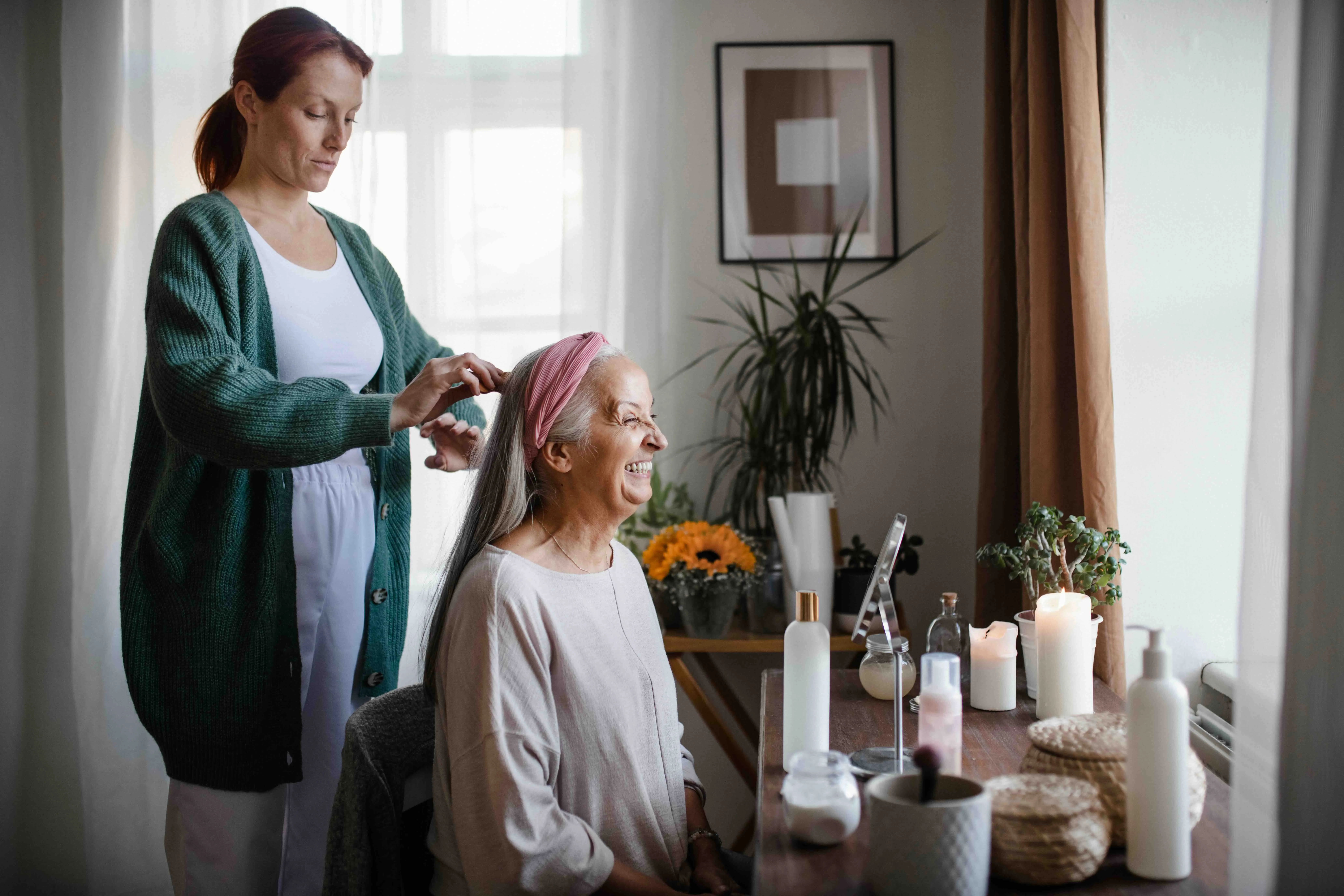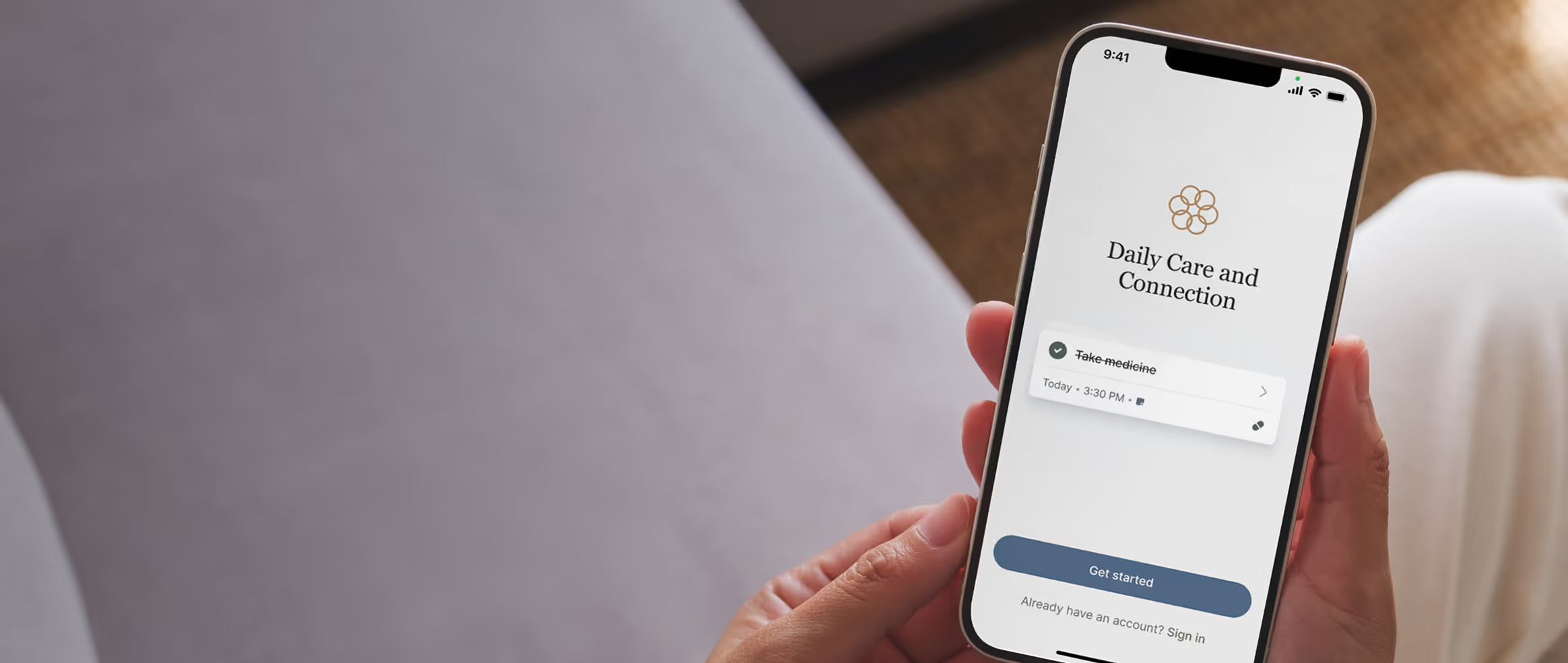Home Care Services: How to Navigate Without Losing Your Mind

Starting or managing home care services can feel overwhelming, like you’ve suddenly taken on a second full-time job with no training. This journey isn’t always chosen, but it’s rarely walked alone, and there’s a way to do it with strength, grace, and peace of mind.
Understanding Home Care Services: What They Are and How They Work
Getting familiar with the structure of home care services can make a major difference in how confident you feel. Home care typically refers to non-medical assistance that helps individuals stay in their homes safely and comfortably. This might include help with bathing, dressing, cooking, cleaning, or companionship.
On the other hand, home health care is medical. Think skilled nursing, medication administration, or post-hospital recovery support, always administered by licensed professionals.
Types of Support from a Home Health Care Agency
A home health care agency typically offers services like visits from registered nurses (RNs), physical or occupational therapy, and other medical interventions. These services can support recovery from surgery, help manage chronic conditions, or step in when hospital-level care is needed at home.
So, when should you go the medical route? If your loved one needs regular health monitoring, wound care, injections, or rehab, medical in-home care services are likely the better fit.
Choosing the Right Home Care for Your Loved One
Not all care is created equal, and choosing the right setup depends on more than just logistics. You’re trying to balance emotional needs, practical realities, and budget, often while juggling your own responsibilities. Here’s how to move through this process with confidence.
Questions to Ask Before Hiring a Home Health Care Agency
Before signing anything, it’s important to have all the important information at your fingertips so you can compare options. Don’t hesitate to ask for references or do a trial period. Compatibility matters just as much as credentials, especially when inviting someone into your home. Some questions to ask include:
- Are they licensed and certified in your state?
- What training do their caregivers receive?
- Are they experienced with conditions like dementia or Parkinson’s?
- Do they offer 24-hour home care or only part-time?
- How do they handle emergencies or last-minute changes?
- Most importantly, will your loved one feel comfortable with their approach and staff?
Don’t hesitate to ask for references or do a trial period. Compatibility matters just as much as credentials, especially when inviting someone into your home.
Comparing Agency-Based Home Care vs. Independent Providers
Going with a home health care agency may cost more than hiring an independent caregiver, but it comes with benefits like vetting, background checks, scheduling help, and replacements when someone is sick. Hiring independently can be more affordable, but it means you’re also managing payroll, taxes, and coverage if your caregiver cancels. To learn more about home care pricing, read our blog In-Home Senior Care or Assisted Living: How to Make the Right Choice.
Managing Home Care Elder Care Without Losing Your Mind
You might be the one making appointments, answering late-night calls, sorting medications, and managing family expectations, often all at once. Caring for someone else while trying to keep your own life afloat is hard. This section is here to help you regain some control, set up systems that actually work, and make space to breathe.
Set Expectations Early
Before services even begin, have honest conversations with your family and your loved one about what care is needed, and who’s doing what. Everyone has different opinions, but unspoken assumptions are a major source of conflict.
Start with a care plan: What does your loved one need help with? Who is available to help? What outside support do you need? Set boundaries early, and be clear about what you can (and cannot) commit to.
Write it down. Even a simple shared document or group message thread can go a long way in making expectations visible and actionable.
Involving your loved one in these conversations can help them feel respected and heard. Their voice matters too, and including them fosters trust and cooperation. Caily’s shared calendar can help everyone stay organized, accountable, and have clear expectations of their tasks and events.
Create a Centralized System for Information
If you're relying on sticky notes, mental lists, and scattered text threads, it's time to streamline. A central system for organizing schedules, medical information, medication lists, and contacts will save you time and serious stress.
Digital tools like Caily offer a secure, user-friendly way to track appointments, share care notes, upload legal documents, and coordinate with everyone involved. No more scrambling for insurance forms or calling multiple people to find out what time the nurse is coming.
A centralized system also ensures that everyone, from family members to hired caregivers, is working from the same information. That alone can prevent miscommunication and mistakes.
Build a Resilient Routine
Home care doesn’t have to mean constant improvisation. Creating a flexible but reliable routine helps both you and your loved one know what to expect. That could mean:
- Morning check-ins or medication reminders
- Regular bathing or meal times
- Standing caregiver visits or family member check-ins
- Daily activities like music or stretching
Routines build predictability, and predictability helps lower stress for everyone involved. Try to keep routines flexible enough to allow for human moments, like a spontaneous walk or a tough day that calls for extra patience. It’s okay to adapt as you go.
Plan for Emergencies Before They Happen
Hope for smooth days, but plan for disruptions. Who will cover if a caregiver calls out? Where is your loved one’s medication list or advance directive? What’s your backup plan in a power outage?
Make a checklist of emergency contacts, include pharmacy and physician details, and keep copies of insurance and ID info handy. You might never need your backup plan, but if you do, you’ll be grateful it exists. Having contingency plans in place won’t eliminate stress, but they will reduce panic when things go sideways. The more you can anticipate, the more confident and prepared you’ll feel.
Caily Chat serves as a centralized space for care conversations, and a detailed contact list for everyone from family to doctors. This means you don’t have to get lost in email threads, or multiple group chats.

Family Caregiving Tips for Coordinating At Home Care
No one should have to carry the weight of at-home care alone. Pull in siblings, friends, or local resources. A neighbor who checks in daily or a cousin who handles appointments can make a huge impact.
In fact, research from the National Alliance for Caregiving and AARP shows that 23% of caregivers who feel they don’t have support report their health as “poor” or “fair” compared to only 14% of those with strong support networks. Team-based caregiving is proven to be effective and helps both caregivers and care recipients. Want to learn more about the power of team based care? Read our blog, “Circles of Care: The Power of Team Caregiving”.
Keep Communication Clear and Ongoing
Set up regular caregiver check-ins and use a shared calendar to keep everyone aligned. Apps like Caily let your whole team stay in sync, without endless text chains.
Protect Your Own Mental and Emotional Health
Breaks are essential. Take time off, even if it’s just for a few hours. And don’t overlook the value of small daily habits: short walks, morning quiet time, or a regular therapy appointment. We offer a comprehensive guide on self-care tips here.
When Do You Need 24-Hour Home Care?
Sometimes part-time care isn’t enough—and it’s important to recognize when more support is needed.
According to the National Alliance for Caregiving and AARP, over 53 million Americans serve as unpaid caregivers, and about 1 in 4 provide care for someone with significant cognitive impairment. As these needs become more complex, round-the-clock support can be critical, not just for the care recipient’s safety, but also for the caregiver’s wellbeing.
Common Signs That 24/7 Support May Be Needed
Safety should always be a guiding factor. If you're worried about leaving your loved one alone for even an hour, it may be time to consider 24 hour home care.
Here are some other common signs:
- Your loved one is wandering, getting lost, or exhibiting signs of late-stage dementia
- They require frequent medication or help with mobility throughout the night
- They experience confusion or agitation in the evenings (sundowning)
- You, as the primary caregiver, are feeling physically depleted or emotionally drained
Making the Transition Smooth
A gradual shift can ease the anxiety for both you and your loved one. Start by adding overnight support a few nights a week. Allow time to build trust and familiarity with new caregivers.
When introducing 24-hour home care, consistency matters. Try to keep routines steady and include your loved one in the process whenever possible.
Don’t forget to take advantage of local resources and professional guidance when making this change. Medicare may cover some home health services, especially when prescribed by a physician after a hospitalization or serious diagnosis. With the right support, 24-hour home care can become a lifeline for both the person receiving care and the family providing it.
Creating a Positive Experience with At-Home Care
Home care elder care is about meeting needs and helping someone feel safe, respected, and still in control.
Involve the Person Being Cared For
Even small decisions, like choosing what to wear or what music to play, can go a long way in preserving dignity and comfort.
Make the Home Safe and Soothing
Invest in safety upgrades like grab bars or smart lighting. Then build in soft routines: tea in the afternoon, a favorite radio show, or simple crafts.
How Caily Makes Home Care Services Easier for Everyone
Caily brings clarity and calm to caregiving, no matter your setup.
- Store health records and legal documents in one place
- Share task lists and care notes with your Care Circle
- Use the Daily Check-In to make sure your loved one is okay, without hovering
From home care to 24-hour home care, Caily is designed to help families coordinate care with confidence and compassion. With the right support systems, the right tools, and the right people on your side, it’s possible to make care more manageable and meaningful. You don’t have to do it all. You just need to know where to start.
FAQs About Home Care and Home Health Care Services
What is home health care?
Home health care refers to medical services like nursing care, wound treatment, and physical therapy delivered by licensed professionals in the patient’s home.
How do I choose a home health care agency?
Look for licensed providers, read reviews, ask about caregiver training, emergency procedures, and how they tailor care to your family’s needs.
What’s the difference between home care and home health care?
Home care is non-medical support (e.g., hygiene, meals, companionship), while home health care is medical (e.g., nursing, medication, rehab).
Can a family provide at-home care without professional help?
Yes, but it can be emotionally and physically exhausting. Professional caregivers can supplement family efforts and provide crucial respite.
How can I avoid caregiver burnout while managing in-home care services?
Use support tools like Caily, ask for help, take breaks, and set limits on what you take on. Remember: caring for yourself helps you care better for others.

Get Started Now
Enjoy full access to everything Caily offers, from medication tracking to shared schedules and daily check-ins. See how much easier caregiving can be when everything is coordinated in one place.
Start your free trial
